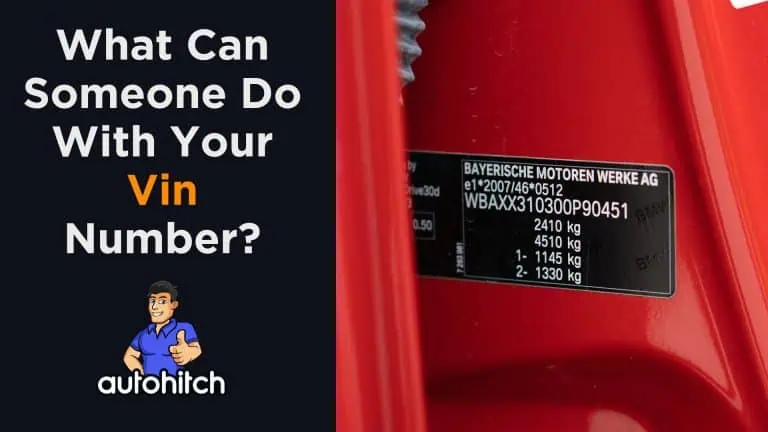When you go to sell your car, potential buyers are bound to request the Vehicle Identification Number (VIN) to run history reports and verify the details you have listed about the car.
You can’t really blame them because you would do the same thing!
However, you might hesitate to share this information because somewhere, you heard that people were being scammed after giving out their vin numbers.
To help dispel some of the misinformation around what someone can actually do if they get your vin number, I created the article below…
Table of Contents
Related Articles To Read:
- Is it OK to Give Someone Your Vin Number
- Lookup Vin Scam
- How To Find Owner of Car by Vin
- Where Can You Find the Vin Number on a Car
- What Trim Is My Car By Vin
- Window Sticker By Vin Free – How To
Why Buyers Request Your VIN
As I said above, there are more legitimate reasons someone will need your vin than there are nefarious reasons. Below is a list of the most common reasons someone will ask for your vin:
| Reason | Explanation |
|---|---|
| Running Vehicle History Reports | Buyers want to check for accidents, title issues, and other important details. |
| Verifying Make, Model, and Trim | The VIN confirms the exact specifications of the vehicle. |
| Checking for Outstanding Loans or Liens | Buyers want to ensure they won’t inherit financial obligations. |
| Calculating Taxes, Fees, and Registration Costs | Some states allow buyers to estimate these costs using the VIN on DMV websites. |
Potential Risks of Sharing Your VIN
As safe as vin numbers are, there are still some potential risks and below I have provided a few.
| Risk | Description |
|---|---|
| VIN Cloning | Criminals may copy your VIN to disguise stolen vehicles, potentially implicating you in legal issues. |
| Identity Theft | While the VIN itself doesn’t contain personal info, it could be used to access linked data and enable fraud. |
| Targeted Parts Theft | Thieves may use your VIN to identify valuable parts specific to your vehicle then track you down to steal the parts. |
| Warranty/Service Scams | Scammers could falsely claim warranty services or parts using your VIN. |
| Remote Access Vulnerabilities | Some mobile apps allow vehicle access with just the VIN, which cybercriminals could exploit. This is rare and requires extreme technical skill, but it is possible. |
Is it Safe To give Out Vin Number
Overall, yes, it is safe to give out a vin number because the vin number doesn’t contain any personal information about the owner. It only provides details about that specific vehicle.
How to Safely Share Your VIN
- Only share your VIN with trusted entities, such as serious buyers, insurance companies, or authorized service providers.
- Be cautious when sharing your VIN online or with untrusted sources.
- Consider running your own vehicle history report and sharing it with potential buyers to maintain control over your information.
- If meeting a buyer in person, allow them to view the VIN on the vehicle itself rather than sending it electronically.
- Stay vigilant for signs of potential scams, such as requests to pay for “special” reports or pressure to share personal information.
My Final Thoughts and Conclusion
While sharing your VIN is generally necessary and safe when selling a vehicle, you still have to be aware of the potential risks and take steps to protect your information.
By limiting your VIN’s exposure, working with trusted parties, and staying alert for red flags, you can minimize the chances of falling victim to VIN-related fraud or theft.



